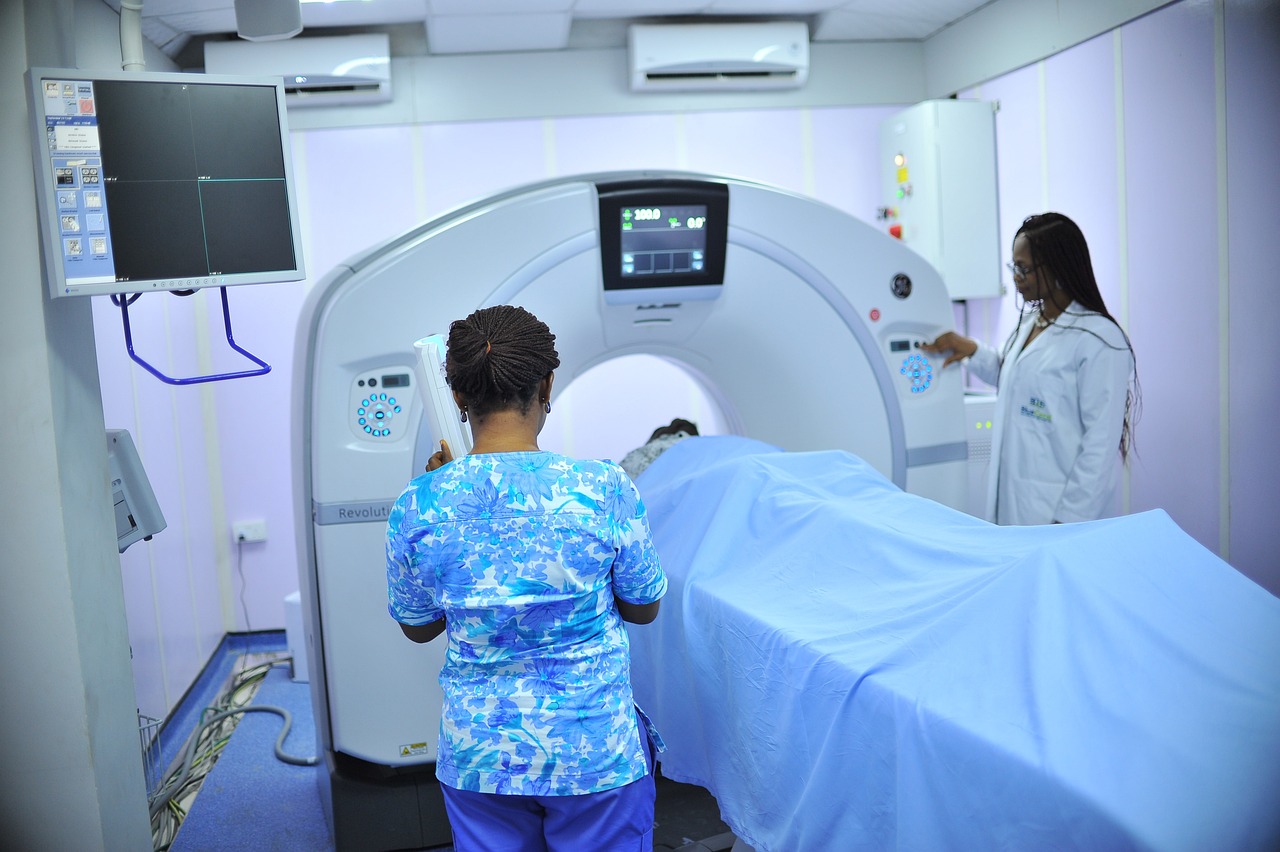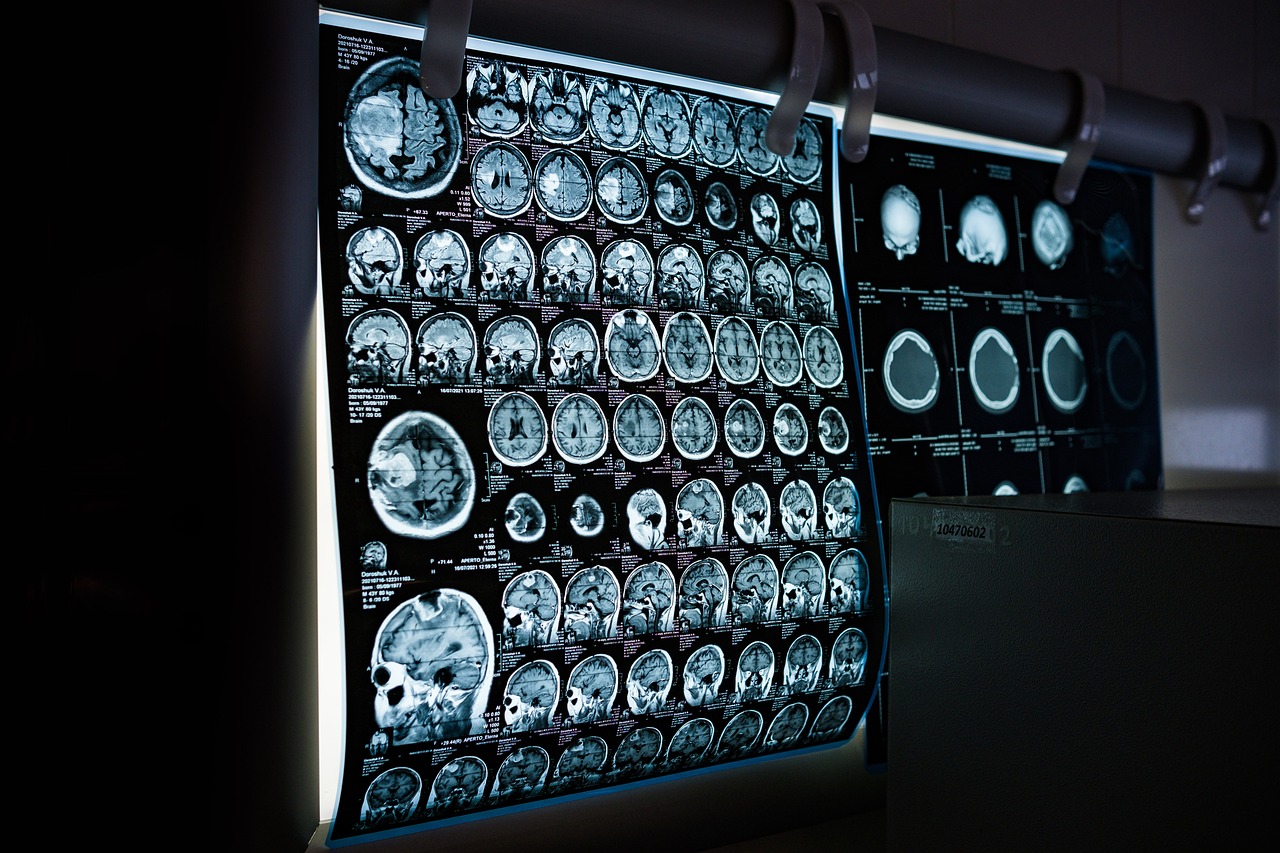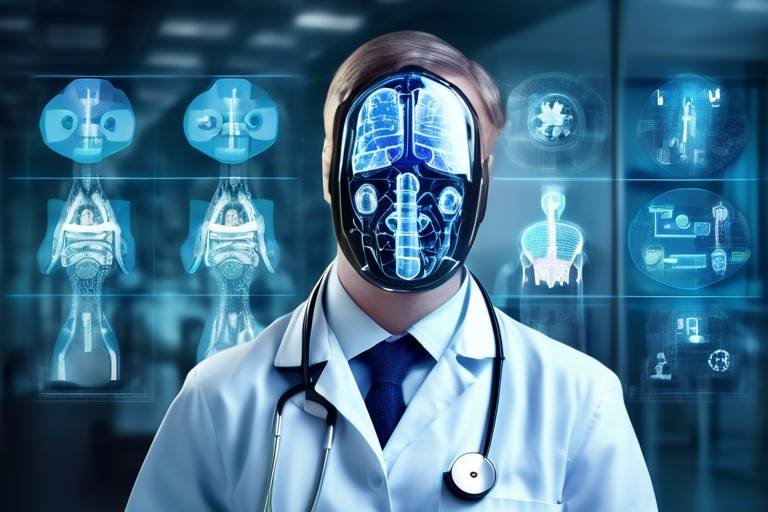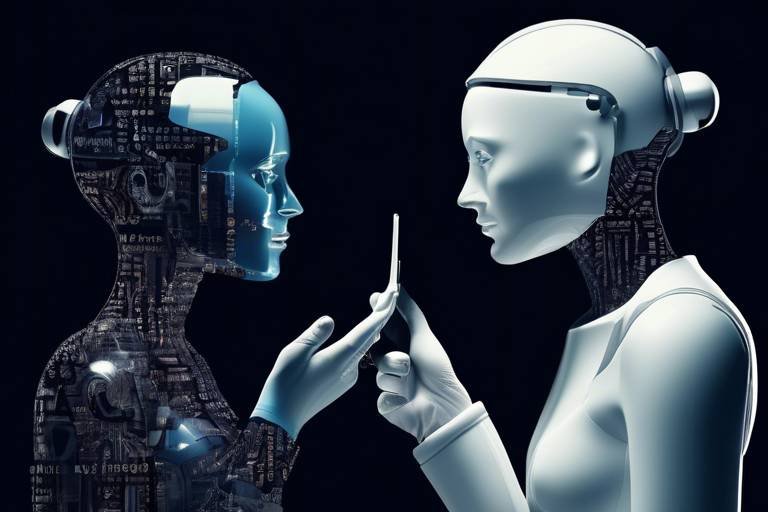Perks and Pitfalls of AI in Healthcare
Artificial Intelligence (AI) is revolutionizing the healthcare industry, offering a plethora of benefits while also posing significant challenges. Imagine a world where doctors can diagnose diseases with pinpoint accuracy, and administrative tasks are handled seamlessly, allowing healthcare providers to focus on what truly matters: patient care. However, with these advancements come critical considerations that cannot be overlooked. This article dives deep into the transformative potential of AI in healthcare, examining both its perks and pitfalls, ensuring that we understand the full spectrum of its impact.
One of the most notable advantages of AI in healthcare is its ability to enhance diagnostic accuracy. By leveraging machine learning algorithms and analyzing vast datasets, AI tools can identify patterns that may elude even the most experienced healthcare professionals. For instance, algorithms can sift through thousands of medical images, detecting anomalies in X-rays or MRIs that could indicate early stages of diseases like cancer. This capability leads to earlier detection, which is often critical for successful treatment outcomes. As a result, patients experience not only improved health prospects but also a reduction in the emotional burden that comes with late diagnoses.
Healthcare systems are notorious for their complex administrative processes, which can often bog down providers and detract from patient care. AI comes to the rescue by streamlining tasks such as scheduling, billing, and patient management. Imagine a world where appointment slots are automatically filled based on patient preferences and availability, or where billing errors are drastically reduced through automated systems. This efficiency not only alleviates the workload for healthcare staff but also enhances the patient experience. With less time spent on administrative duties, providers can dedicate more energy to direct patient interactions, fostering a more compassionate healthcare environment.
Human error is an unfortunate reality in healthcare, with potentially devastating consequences. AI systems serve as a safeguard, providing decision support that helps clinicians adhere to best practices. For example, AI can alert healthcare providers to potential medication interactions or suggest alternative treatments based on a patient's unique profile. This support is crucial in enhancing patient safety and ensuring that treatment protocols are followed accurately. By acting as a second set of eyes, AI not only reduces the risk of mistakes but also instills greater confidence in both providers and patients alike.
While the benefits of AI are clear, effective training and support for healthcare staff are vital to ensure successful implementation. Without proper education on how to utilize AI tools, even the most advanced technologies can fall short of their potential. Ongoing training programs should focus on familiarizing staff with AI capabilities, as well as the ethical considerations surrounding its use. Strategies for successful implementation include:
- Workshops and hands-on training sessions
- Access to online resources and tutorials
- Regular feedback loops to address concerns and improvements
By investing in training, healthcare organizations can maximize the benefits of AI, ultimately leading to better patient outcomes.
Real-world examples of AI in action provide compelling evidence of its transformative capabilities. Consider the case of a hospital that integrated an AI-powered triage system. This system significantly reduced patient wait times and improved the accuracy of initial assessments, leading to faster treatment. Another example involves AI algorithms used in pathology, where they assist in identifying cancerous cells with remarkable precision. These case studies not only highlight the effectiveness of AI but also serve as a roadmap for other organizations looking to adopt similar technologies.
Despite the clear advantages, integrating AI into existing healthcare systems is not without its challenges. Organizations often face obstacles such as data interoperability, where different systems struggle to communicate with one another. Additionally, there can be resistance to change from staff who are accustomed to traditional methods. Overcoming these challenges requires a strategic approach, including engaging stakeholders at all levels and ensuring that everyone understands the potential benefits of AI.
The integration of AI in healthcare also raises significant ethical questions. Issues such as data privacy, bias, and accountability must be addressed to ensure that AI technologies are used responsibly. As we embrace the future of healthcare, it is essential to establish regulatory frameworks that govern the use of AI, safeguarding both patients and providers.
Protecting patient data is paramount in healthcare. With AI systems processing sensitive information, the risk of data breaches becomes a pressing concern. Healthcare organizations must prioritize robust data protection measures, ensuring compliance with regulations such as HIPAA. This commitment to data privacy not only builds trust with patients but also mitigates potential legal ramifications.
AI algorithms can inadvertently perpetuate biases present in their training data. This raises critical questions about fairness in healthcare decision-making. To address this issue, organizations must implement strategies to identify and mitigate bias in AI applications. This could involve diversifying training datasets and continuously monitoring AI outputs for fairness, ensuring that all patients receive equitable care.
The future of AI in healthcare is bright, with ongoing advancements promising even greater improvements in patient care. Emerging trends, such as personalized medicine and predictive analytics, are set to reshape the healthcare landscape. As we look ahead, it is crucial to embrace innovation while remaining vigilant about the ethical implications and challenges that accompany these technologies. By doing so, we can harness the full potential of AI to create a healthier, more efficient world.
Q: What are the main benefits of AI in healthcare?
A: AI enhances diagnostic accuracy, streamlines administrative processes, reduces human error, and improves patient safety.
Q: What challenges does AI face in healthcare integration?
A: Key challenges include data interoperability, resistance to change, and the need for effective training and support for healthcare staff.
Q: How can we ensure patient data privacy with AI?
A: Organizations must implement robust data protection measures and comply with regulations like HIPAA to safeguard patient information.
Q: What are the ethical concerns surrounding AI in healthcare?
A: Ethical concerns include data privacy, potential biases in AI algorithms, and the need for accountability in AI-driven decision-making.

Enhanced Diagnostic Accuracy
Artificial Intelligence (AI) is revolutionizing the way we approach diagnostics in healthcare. Imagine a world where doctors can harness the power of advanced algorithms to sift through mountains of medical data, uncovering insights that the human eye might miss. This isn't just a dream; it's becoming a reality! AI technologies, such as machine learning and deep learning, are paving the way for enhanced diagnostic accuracy, enabling earlier detection of diseases and ultimately leading to better patient outcomes.
Take, for instance, the use of AI in radiology. Traditional methods of analyzing medical images can be time-consuming and prone to human error. However, AI systems can analyze thousands of images in a fraction of the time, identifying patterns that indicate the presence of conditions like cancer or fractures. According to recent studies, AI systems have demonstrated diagnostic accuracy rates that rival or even surpass those of experienced radiologists.
But how does this all work? AI algorithms are trained on vast datasets, learning to recognize the subtle differences in images that may indicate various health issues. For example, a machine learning model might be trained on thousands of mammogram images to identify signs of breast cancer. The result is a tool that not only saves time but also enhances the likelihood of early detection, which is crucial for successful treatment.
Moreover, AI isn't just limited to imaging. It extends its capabilities to other areas, such as pathology, genomics, and even patient history analysis. Here are some of the key areas where AI is making a significant impact:
- Pathology: AI can assist pathologists in analyzing biopsy samples, improving the speed and accuracy of cancer diagnoses.
- Genomics: By analyzing genetic data, AI can help identify predispositions to certain diseases, allowing for personalized treatment plans.
- Clinical Decision Support: AI tools can provide healthcare professionals with evidence-based recommendations, enhancing the decision-making process.
With the integration of AI into diagnostic processes, healthcare professionals are empowered to make more informed decisions. This not only enhances the accuracy of diagnoses but also fosters a collaborative environment where technology and human expertise work hand in hand. However, as we embrace these advancements, it's essential to remain vigilant about the ethical implications and ensure that AI is used responsibly in patient care.
In conclusion, the enhanced diagnostic accuracy brought about by AI is a game-changer for the healthcare industry. With its ability to analyze vast amounts of data quickly and accurately, AI is set to transform the landscape of diagnostics, leading to better patient outcomes and a more efficient healthcare system. As we continue to explore the potential of AI, the future looks bright for both healthcare providers and patients alike.

Streamlined Administrative Processes
In the fast-paced world of healthcare, the administrative burden can often feel like a heavy weight on the shoulders of healthcare providers. Enter artificial intelligence (AI), a game-changer that promises to lighten this load significantly. By automating routine tasks such as scheduling, billing, and patient management, AI allows healthcare professionals to redirect their focus toward what truly matters: patient care. Imagine a world where administrative tasks are handled seamlessly, freeing up precious time for doctors and nurses to engage with patients, rather than drowning in paperwork.
AI technologies are designed to tackle the tedious aspects of healthcare administration with remarkable efficiency. For instance, AI-powered scheduling systems can analyze a multitude of factors—like patient preferences, physician availability, and even historical appointment data—to optimize schedules. This not only minimizes the risk of double bookings but also enhances patient satisfaction by ensuring timely appointments. The result? A smoother workflow that benefits everyone involved.
Moreover, billing processes can be notoriously complex and time-consuming. AI can streamline this by automating claims processing, reducing the time it takes to get paid and decreasing the likelihood of errors. With AI handling the intricacies of billing, healthcare providers can spend less time on the phone with insurance companies and more time with their patients. This shift has a ripple effect, improving both the financial health of healthcare organizations and the overall patient experience.
To illustrate the impact of AI on administrative processes, consider the following table showcasing common administrative tasks and how AI optimizes them:
| Administrative Task | Traditional Approach | AI-Enhanced Approach |
|---|---|---|
| Appointment Scheduling | Manual entry, prone to errors | Automated scheduling using algorithms |
| Billing and Claims Processing | Time-consuming, high error rate | Automated billing with real-time updates |
| Patient Management | Fragmented systems, lack of integration | Unified AI systems for comprehensive management |
As healthcare providers embrace these AI tools, they discover that the benefits extend beyond mere efficiency. The reduction of administrative workload leads to improved job satisfaction among staff, as they can engage more meaningfully with patients. This shift not only fosters a positive workplace culture but also enhances patient outcomes, as more time spent with patients translates into better care.
However, it's important to acknowledge that the integration of AI into administrative processes isn't without its challenges. Organizations must ensure that their staff is adequately trained to use these new tools effectively. Ongoing education and support are crucial to maximizing the benefits of AI, turning potential pitfalls into stepping stones toward a more efficient healthcare system.
In conclusion, the adoption of AI in healthcare administration is not just about keeping up with technology; it’s about revolutionizing the way we approach patient care. By streamlining administrative processes, AI not only enhances operational efficiency but also enriches the patient experience, making healthcare more responsive and compassionate.

Reducing Human Error
One of the most significant advantages of integrating artificial intelligence (AI) into healthcare is its potential to reduce human error. In an industry where mistakes can have serious consequences, the precision and reliability of AI technologies can be a game-changer. Imagine a world where diagnostic errors are drastically minimized, where treatment protocols are adhered to with unwavering consistency, and where the chances of overlooking critical patient information are significantly reduced. This is not just a dream; it's becoming a reality thanks to AI.
AI systems are designed to analyze vast amounts of medical data, including patient histories, lab results, and imaging studies. By processing this data, AI can provide healthcare professionals with evidence-based recommendations that are tailored to individual patients. For instance, when a doctor is faced with a complex case, AI can quickly analyze previous similar cases, highlight key findings, and suggest potential treatment options. This decision support not only enhances the diagnostic process but also ensures that healthcare providers adhere to best practices.
Furthermore, AI can help standardize treatment protocols. In a busy clinical environment, it's easy for human providers to deviate from established guidelines, whether due to time constraints, oversight, or fatigue. AI can serve as a constant reminder, ensuring that all steps in a treatment plan are followed meticulously. For example, an AI system can alert healthcare providers if a prescribed medication interacts negatively with another drug the patient is taking, thus preventing a potentially dangerous situation.
However, the integration of AI in reducing human error is not without its challenges. Healthcare professionals must be adequately trained to use these systems effectively. Without proper education, there is a risk that AI tools could be misused or misunderstood, leading to errors rather than preventing them. Therefore, organizations must prioritize effective training and support for their staff. This includes not only initial training but also ongoing education about updates and new features of AI tools.
To illustrate the impact of AI on reducing human error, consider the following table that highlights key areas where AI has made a difference:
| Area | Impact of AI |
|---|---|
| Diagnostic Accuracy | AI algorithms analyze imaging data to detect anomalies that may be missed by human eyes. |
| Medication Management | AI systems monitor patient medications and alert providers to potential interactions. |
| Clinical Decision Support | AI provides evidence-based recommendations to guide treatment decisions. |
In conclusion, the role of AI in reducing human error in healthcare is transformative. By enhancing diagnostic accuracy, standardizing treatment protocols, and providing real-time decision support, AI not only improves patient safety but also empowers healthcare providers to deliver better care. As we move forward, it is essential to embrace the potential of AI while ensuring that healthcare professionals are equipped with the knowledge and skills necessary to utilize these tools effectively.
- How does AI reduce human error in healthcare?
AI reduces human error by providing decision support, analyzing large datasets for accurate diagnoses, and ensuring adherence to treatment protocols.
- What training is required for healthcare professionals to use AI?
Healthcare professionals need comprehensive training on AI tools, including initial education and ongoing updates to remain proficient in their use.
- Are there risks associated with AI in healthcare?
Yes, risks include potential misuse of AI tools and reliance on technology without sufficient understanding, which can lead to errors.

Training and Support
Integrating artificial intelligence (AI) into healthcare is not just about having the latest technology; it’s also about ensuring that healthcare professionals are equipped to use these tools effectively. The success of AI implementation hinges significantly on the training and support provided to the staff. Imagine trying to navigate a complex GPS system without any instructions—it’s frustrating and likely leads to mistakes. Similarly, healthcare providers need comprehensive training to harness the full potential of AI systems.
Effective training programs should encompass various aspects, including the technical functionalities of AI tools, understanding data privacy concerns, and recognizing the limitations of AI. A well-rounded training approach often includes:
- Hands-on Workshops: Practical sessions where healthcare staff can interact with AI systems in a controlled environment.
- Online Modules: Flexible learning options that allow staff to learn at their own pace, covering essential topics from data handling to ethical implications.
- Regular Updates: As AI technology evolves, ongoing education ensures that staff stays current with new features and best practices.
Moreover, support doesn’t end with training. Continuous support is crucial for addressing real-time challenges that staff may encounter while using AI systems. Establishing a dedicated support team can help in troubleshooting issues, providing guidance, and fostering a culture of learning and adaptation. This support system can be likened to having a safety net; it allows healthcare professionals to explore and innovate without the fear of falling into pitfalls.
Additionally, organizations should encourage a collaborative environment where staff can share experiences and solutions related to AI usage. Regular feedback sessions can be instrumental in refining training programs and support mechanisms. The goal is to create a community that not only embraces AI but also continually seeks to improve patient care through its application.
In conclusion, investing in is not just an operational necessity; it’s a strategic imperative that can lead to enhanced patient outcomes and operational efficiency. By equipping healthcare professionals with the right tools and knowledge, we pave the way for a future where AI and human expertise work hand in hand to transform healthcare.
- What types of training are available for healthcare professionals using AI?
Training can include hands-on workshops, online courses, and regular update sessions to keep staff informed about new AI developments. - How can organizations support their staff in adapting to AI?
Organizations can provide ongoing support through dedicated help desks, collaborative feedback sessions, and creating a culture that encourages learning. - Why is continuous education important in AI integration?
AI technology evolves rapidly, and continuous education ensures that healthcare professionals are up-to-date with the latest tools and practices, enhancing patient care.

Case Studies
When it comes to the real-world application of AI in healthcare, the stories are as inspiring as they are enlightening. Numerous case studies showcase how AI technologies have transformed patient care and operational efficiency, proving that the integration of artificial intelligence is not just a futuristic concept but a present-day reality. One standout example is the use of AI in radiology, where algorithms analyze medical images with remarkable precision. For instance, at Stanford University, researchers developed an AI system that can detect pneumonia from chest X-rays with an accuracy surpassing that of human radiologists. This breakthrough not only enhances diagnostic accuracy but also speeds up the process, allowing for quicker treatment decisions.
Another compelling case study involves the use of AI in predicting patient deterioration. At the University of Pennsylvania, a predictive analytics tool was implemented that uses historical patient data to forecast potential complications. This system can alert healthcare providers about patients at risk of sepsis, enabling timely interventions that can save lives. The results were staggering: hospitals that adopted this AI solution reported a significant reduction in sepsis-related mortality rates.
Moreover, AI has also found its way into personalized medicine. A notable example is IBM’s Watson, which analyzes vast amounts of medical literature and patient data to recommend tailored treatment plans for cancer patients. In a clinical trial involving breast cancer treatment, Watson’s recommendations aligned with oncologists' decisions 96% of the time, demonstrating the potential of AI to enhance treatment precision and patient outcomes.
Here’s a brief overview of some impactful AI case studies in healthcare:
| Case Study | Technology Used | Outcome |
|---|---|---|
| Stanford University Radiology | AI for Image Analysis | Improved pneumonia detection accuracy |
| University of Pennsylvania | Predictive Analytics Tool | Reduced sepsis-related mortality rates |
| IBM Watson | AI for Personalized Medicine | 96% alignment with oncologists' treatment decisions |
These case studies illustrate not only the transformative power of AI in healthcare but also its ability to enhance patient safety and improve clinical outcomes. As healthcare organizations continue to embrace AI technologies, we can expect to see even more innovative applications that will redefine the way care is delivered. The future is indeed bright for AI in healthcare, and these examples serve as a testament to the potential that lies ahead.
Q: What are the main benefits of using AI in healthcare?
A: AI enhances diagnostic accuracy, streamlines administrative processes, reduces human error, and supports personalized medicine, ultimately leading to improved patient outcomes.
Q: Are there any risks associated with AI in healthcare?
A: Yes, there are ethical concerns, including data privacy, bias in algorithms, and the need for accountability in AI decision-making.
Q: How can healthcare professionals be trained to use AI tools effectively?
A: Ongoing education and practical training sessions are essential for healthcare professionals to understand and utilize AI tools effectively in their practice.
Q: What does the future hold for AI in healthcare?
A: The future of AI in healthcare looks promising, with continuous advancements expected to enhance patient care, operational efficiency, and overall healthcare quality.

Integration Challenges
Integrating artificial intelligence (AI) into existing healthcare systems is not as simple as flipping a switch. It’s more like trying to fit a square peg into a round hole—challenging, frustrating, but not impossible! One of the most significant hurdles is data interoperability. Healthcare facilities often use different systems that don’t communicate well with each other. Imagine trying to have a conversation where everyone speaks a different language; that’s what it’s like when data systems don’t align. This lack of seamless communication can lead to missed opportunities for AI to analyze comprehensive patient data effectively.
Moreover, there’s the human factor. Change is hard, and many healthcare professionals are resistant to adopting new technologies. It’s not just about learning how to use AI tools; it’s about trusting them. After all, when lives are at stake, who wouldn’t be cautious? To ease this transition, healthcare organizations must prioritize training and support for their staff. Providing adequate resources and fostering a culture of openness to new technologies can help bridge this gap.
Another challenge is the cost of implementation. While AI has the potential to save money in the long run, the initial investment can be daunting. Hospitals and clinics must weigh the benefits against the costs, which can lead to hesitation in embracing AI solutions. Additionally, ongoing maintenance and updates can add to the financial burden. To counter this, organizations should evaluate potential return on investment (ROI) by considering how AI can enhance efficiency and improve patient outcomes over time.
Furthermore, there’s the issue of regulatory compliance. The healthcare industry is heavily regulated, and incorporating AI tools must align with existing laws and standards. This can be a complex process, as regulations may not yet fully address the nuances of AI technology. Organizations need to stay informed about the evolving regulatory landscape while ensuring that their AI systems are compliant with privacy laws and ethical standards.
In summary, while the integration of AI into healthcare presents numerous challenges, it’s essential to recognize that these obstacles can be overcome with the right strategies. By focusing on data interoperability, fostering a culture of acceptance, managing costs effectively, and ensuring regulatory compliance, healthcare organizations can pave the way for a successful AI implementation. The road may be bumpy, but the destination—a more efficient, accurate, and patient-centered healthcare system—is worth the effort.
- What are the main challenges of integrating AI in healthcare?
Key challenges include data interoperability, resistance to change among staff, high implementation costs, and regulatory compliance.
- How can healthcare organizations overcome resistance to AI adoption?
Providing comprehensive training and fostering a culture of openness can help ease the transition and build trust in AI technologies.
- Is the cost of implementing AI worth it?
While initial costs can be high, the potential for improved efficiency and patient outcomes can lead to significant long-term savings.
- What role does regulatory compliance play in AI integration?
Compliance with existing laws and standards is crucial to ensure that AI systems are safe, ethical, and protect patient privacy.

Ethical Considerations
As we dive deeper into the world of artificial intelligence in healthcare, it’s essential to pause and reflect on the that come with this technological revolution. While AI holds the promise of transforming patient care and operational efficiency, it also raises significant questions about data privacy, bias, and accountability. These issues are not just abstract concepts; they have real-world implications for patients, healthcare providers, and society at large.
One of the foremost concerns is data privacy. In an era where patient information is more digital than ever, ensuring the confidentiality and security of sensitive data is paramount. Healthcare organizations must navigate the complex landscape of regulations, such as HIPAA in the United States, to safeguard patient information. When AI systems analyze vast datasets to identify patterns or predict outcomes, they inevitably access personal health information. This raises the question: how can we ensure that this data is used ethically and responsibly? The potential for data breaches or misuse is a looming threat that cannot be ignored.
Moreover, the issue of bias and fairness in AI algorithms is a critical ethical challenge. AI systems learn from historical data, and if that data reflects existing biases—whether based on race, gender, or socioeconomic status—the algorithms can inadvertently perpetuate these biases in their decision-making processes. For instance, if an AI tool is trained predominantly on data from a specific demographic, it may not perform as effectively for underrepresented groups. This could lead to disparities in healthcare outcomes, reinforcing existing inequalities. It’s vital to implement strategies that promote fairness, such as diversifying training datasets and continuously monitoring AI outputs for biased results.
Accountability is another significant concern. As AI systems take on more decision-making roles in healthcare, determining who is responsible when something goes wrong becomes increasingly complex. Is it the healthcare provider who relied on the AI's recommendations, the developers of the AI, or the institution that implemented the technology? Establishing clear guidelines and regulatory frameworks for accountability is crucial to ensure that patients receive safe and effective care.
Addressing these ethical considerations requires a collaborative effort among healthcare professionals, technologists, policymakers, and ethicists. Engaging in open dialogues about the implications of AI in healthcare can foster a culture of transparency and trust. Additionally, ongoing education and training for healthcare staff on ethical AI use can help mitigate risks and promote responsible practices.
In summary, while the integration of AI into healthcare presents remarkable opportunities, it also necessitates a careful examination of the ethical landscape. As we move forward, prioritizing ethics will be essential to harness the full potential of AI while safeguarding the rights and well-being of patients.
- What are the main ethical concerns surrounding AI in healthcare? The primary concerns include data privacy, bias in algorithms, and accountability for decisions made by AI systems.
- How can healthcare organizations protect patient data? Organizations must adhere to regulations like HIPAA, implement robust cybersecurity measures, and ensure that AI systems are designed with privacy in mind.
- What steps can be taken to reduce bias in AI? Strategies include diversifying training datasets, regularly auditing AI systems for bias, and involving diverse stakeholders in the development process.
- Who is responsible if an AI system makes a mistake? Accountability can be complex; it may involve healthcare providers, AI developers, and the institutions using the technology.

Data Privacy Concerns
In the rapidly evolving landscape of healthcare, the integration of artificial intelligence (AI) brings forth a multitude of benefits, but it also raises significant . As AI systems rely heavily on vast amounts of patient data to learn and improve, the safeguarding of this sensitive information becomes paramount. Imagine a world where your most personal health details are at risk of exposure; it’s a daunting thought that many healthcare providers must grapple with.
One of the primary challenges in ensuring data privacy is the sheer volume of data that AI systems require. These systems process everything from medical histories to real-time health monitoring data. This data, if not adequately protected, could be vulnerable to breaches or unauthorized access. For instance, consider the scenario where a hacker gains access to a hospital's AI system. They could potentially access a treasure trove of personal health information, leading to dire consequences for patients.
To address these concerns, healthcare organizations must adopt robust data protection measures. Here are some essential strategies:
- Encryption: Encrypting sensitive data ensures that even if it is intercepted, it remains unreadable without the proper decryption keys.
- Access Controls: Implementing strict access controls ensures that only authorized personnel can access sensitive patient data.
- Regular Audits: Conducting regular audits of AI systems can help identify vulnerabilities and ensure compliance with data protection regulations.
Moreover, healthcare providers must also stay informed about the legal frameworks governing data privacy. Regulations such as the Health Insurance Portability and Accountability Act (HIPAA) in the United States set stringent standards for the protection of patient information. Compliance with such regulations is not just a legal obligation; it’s a moral responsibility. Patients trust healthcare providers with their most sensitive information, and any breach of that trust can have lasting repercussions.
Another critical aspect of data privacy is the potential for bias in AI algorithms. If the data used to train these systems is not representative of the diverse patient population, it could lead to skewed outcomes that disproportionately affect certain groups. This not only raises ethical concerns but also poses a risk to patient safety. For example, if an AI system is primarily trained on data from one demographic, it may not perform as effectively for patients from different backgrounds, leading to misdiagnoses or inappropriate treatment plans.
In conclusion, while AI holds incredible potential to revolutionize healthcare, it is essential to address the that accompany its adoption. By implementing stringent data protection measures, ensuring compliance with legal regulations, and actively working to mitigate bias, healthcare organizations can harness the power of AI while safeguarding patient trust. The journey towards a more secure and efficient healthcare system is ongoing, and it requires a collective effort from all stakeholders involved.
- What are the main data privacy concerns with AI in healthcare? The main concerns include unauthorized access to sensitive patient data, potential data breaches, and the risk of bias in AI algorithms.
- How can healthcare organizations protect patient data? Organizations can protect patient data by implementing encryption, strict access controls, and conducting regular audits of their AI systems.
- What regulations govern data privacy in healthcare? In the United States, the Health Insurance Portability and Accountability Act (HIPAA) sets stringent standards for the protection of patient information.
- Why is bias in AI a concern for patient safety? If AI systems are trained on non-representative data, they may produce skewed outcomes, leading to misdiagnoses or inappropriate treatment for certain patient groups.

Bias and Fairness
In the ever-evolving landscape of healthcare, the integration of artificial intelligence (AI) brings with it a complex web of challenges, particularly concerning bias and fairness. AI systems are only as good as the data they are trained on. If this data reflects historical biases or societal inequalities, the algorithms can inadvertently perpetuate these issues, leading to unfair treatment of certain groups. For instance, if an AI system is trained predominantly on data from one demographic, it may not perform well for others, resulting in misdiagnoses or inadequate care. This is a critical concern, as it raises the question: how can we ensure that AI serves all patients equitably?
To tackle these biases, healthcare organizations must adopt a multifaceted approach. First, it’s essential to diversify training datasets. This means including a wide array of patient data that reflects different ages, ethnicities, genders, and socioeconomic backgrounds. By doing so, AI systems can learn to recognize patterns across varied populations, improving their accuracy and fairness in clinical decision-making.
Moreover, ongoing evaluation of AI algorithms is crucial. Regular audits can help identify and rectify biases that may emerge as new data is introduced. This process can be likened to maintaining a garden; just as weeds can choke out healthy plants, biases can undermine the effectiveness of AI applications if not regularly addressed. It is vital for healthcare providers to implement a system of checks and balances to ensure that AI remains a tool for equity rather than a source of disparity.
Furthermore, transparency in AI algorithms is key. When healthcare providers understand how AI systems make decisions, they can better assess whether these decisions are fair and justified. This transparency fosters trust among patients, who may otherwise be wary of AI involvement in their healthcare. For instance, if patients know that an AI tool has been validated across diverse populations, they may feel more confident in its recommendations.
In addition to these strategies, collaboration among stakeholders is essential. Healthcare providers, data scientists, ethicists, and patients must come together to discuss and address these biases. By fostering an open dialogue, the healthcare community can work towards creating AI systems that prioritize fairness. This collaborative approach can lead to the development of ethical guidelines that govern the use of AI in healthcare, ensuring that all patients receive the best possible care.
To summarize, while AI presents significant opportunities for enhancing healthcare, it also poses challenges related to bias and fairness. By diversifying data, conducting regular audits, promoting transparency, and encouraging collaboration, we can mitigate these issues and harness the full potential of AI in a way that is equitable for all.
- What is bias in AI? Bias in AI refers to systematic errors that can lead to unfair treatment or outcomes based on the data the AI is trained on.
- How can bias in AI be mitigated? Bias can be mitigated by diversifying training datasets, conducting regular audits, and ensuring transparency in AI algorithms.
- Why is fairness important in healthcare AI? Fairness is crucial to ensure that all patients receive equitable treatment and care, regardless of their background or demographic factors.
- What role do stakeholders play in addressing AI bias? Stakeholders, including healthcare providers, data scientists, and patients, must collaborate to discuss and implement strategies for reducing bias in AI systems.

Future Prospects
The future of AI in healthcare is not just a distant dream; it's a rapidly approaching reality that promises to transform the industry in ways we can hardly imagine. As technology continues to evolve, the integration of artificial intelligence into healthcare systems is expected to grow exponentially. Imagine a world where diagnoses are made in seconds, treatment plans are tailored to individual patients with pinpoint accuracy, and healthcare providers have access to real-time data that enhances decision-making. This is not science fiction—it's the potential future we're heading towards.
One of the most exciting prospects is the development of predictive analytics. This technology can analyze trends and patterns in patient data to foresee potential health issues before they arise. For instance, AI could identify patients at risk for chronic diseases, enabling early interventions that could save lives and reduce healthcare costs. The ability to predict health outcomes based on vast datasets could revolutionize preventative care.
Moreover, the personalization of treatment is another area where AI shines. Imagine a scenario where your treatment plan is crafted specifically for you, taking into account your genetic makeup, lifestyle, and preferences. This level of customization could lead to significantly better patient outcomes. AI algorithms can sift through extensive medical literature and clinical trials to recommend the best possible therapies tailored to individual patients, making healthcare not just reactive but proactive.
Furthermore, the integration of AI with telemedicine is set to enhance accessibility and efficiency in healthcare delivery. With the rise of remote consultations, AI can assist in triaging patients, ensuring they receive the right care at the right time. This could be particularly beneficial in rural or underserved areas where access to healthcare professionals is limited. AI-driven tools can help streamline these processes, allowing healthcare providers to manage their time effectively while still delivering quality care.
However, it's essential to remember that with great power comes great responsibility. As we look ahead, we must also consider the ethical implications of AI in healthcare. The technology's rapid advancement necessitates a robust framework to address issues such as data privacy, bias, and accountability. Ensuring that AI systems are transparent and equitable will be crucial in maintaining trust between patients and healthcare providers.
In conclusion, the future of AI in healthcare is bright and full of potential. As we embrace these advancements, we must also remain vigilant in addressing the challenges that come with them. The synergy between human expertise and artificial intelligence could lead us to a healthcare system that is not only more efficient but also more compassionate and tailored to the needs of each individual.
- What are the main benefits of AI in healthcare? AI can enhance diagnostic accuracy, streamline administrative processes, and personalize treatment plans, ultimately improving patient outcomes.
- How does AI improve patient safety? By minimizing human error through decision support systems and adherence to best practices, AI can significantly enhance patient safety in clinical settings.
- What ethical concerns are associated with AI in healthcare? Key concerns include data privacy, algorithmic bias, and accountability for decisions made by AI systems.
- What is the future of AI in healthcare? The future holds promise for predictive analytics, personalized treatment, and improved telemedicine integration, but ethical considerations must be addressed.
Frequently Asked Questions
- What are the main benefits of using AI in healthcare?
AI enhances diagnostic accuracy, streamlines administrative processes, and reduces human error. With the ability to analyze vast amounts of medical data, AI tools assist healthcare professionals in making informed decisions, leading to earlier disease detection and improved patient outcomes.
- How does AI improve diagnostic accuracy?
AI improves diagnostic accuracy by utilizing advanced algorithms to analyze medical images, lab results, and patient data. This technology can identify patterns that may be missed by human eyes, thus facilitating earlier detection of conditions like cancer and heart disease.
- What challenges come with integrating AI into healthcare systems?
Integrating AI into healthcare systems can be challenging due to issues like data interoperability, resistance to change from staff, and the need for significant investment in training and infrastructure. These hurdles can slow down the adoption of AI technologies in healthcare settings.
- Are there ethical concerns regarding AI in healthcare?
Yes, ethical concerns include data privacy, potential biases in AI algorithms, and accountability for decisions made by AI systems. It is crucial to establish regulatory frameworks to address these issues and ensure that AI is used responsibly in healthcare.
- How can AI help reduce human error in clinical settings?
AI can minimize human error by providing decision support tools that remind healthcare professionals of best practices and guidelines. This technology helps ensure that treatments are administered correctly and that patient safety is prioritized.
- What role does training play in the successful implementation of AI in healthcare?
Effective training is essential for healthcare staff to understand and utilize AI tools effectively. Ongoing education helps maximize the benefits of AI and ensures that staff are comfortable and proficient in using these technologies in their daily work.
- Can you provide examples of successful AI implementations in healthcare?
Yes! There are numerous case studies where AI has significantly improved patient care and operational efficiency. For example, AI-powered diagnostic tools have successfully detected diseases earlier, and administrative AI systems have streamlined scheduling and billing processes.
- What are the future prospects for AI in healthcare?
The future of AI in healthcare looks promising, with ongoing advancements expected to enhance patient care even further. Emerging trends suggest that AI will play a crucial role in personalized medicine, predictive analytics, and improving healthcare accessibility.



















